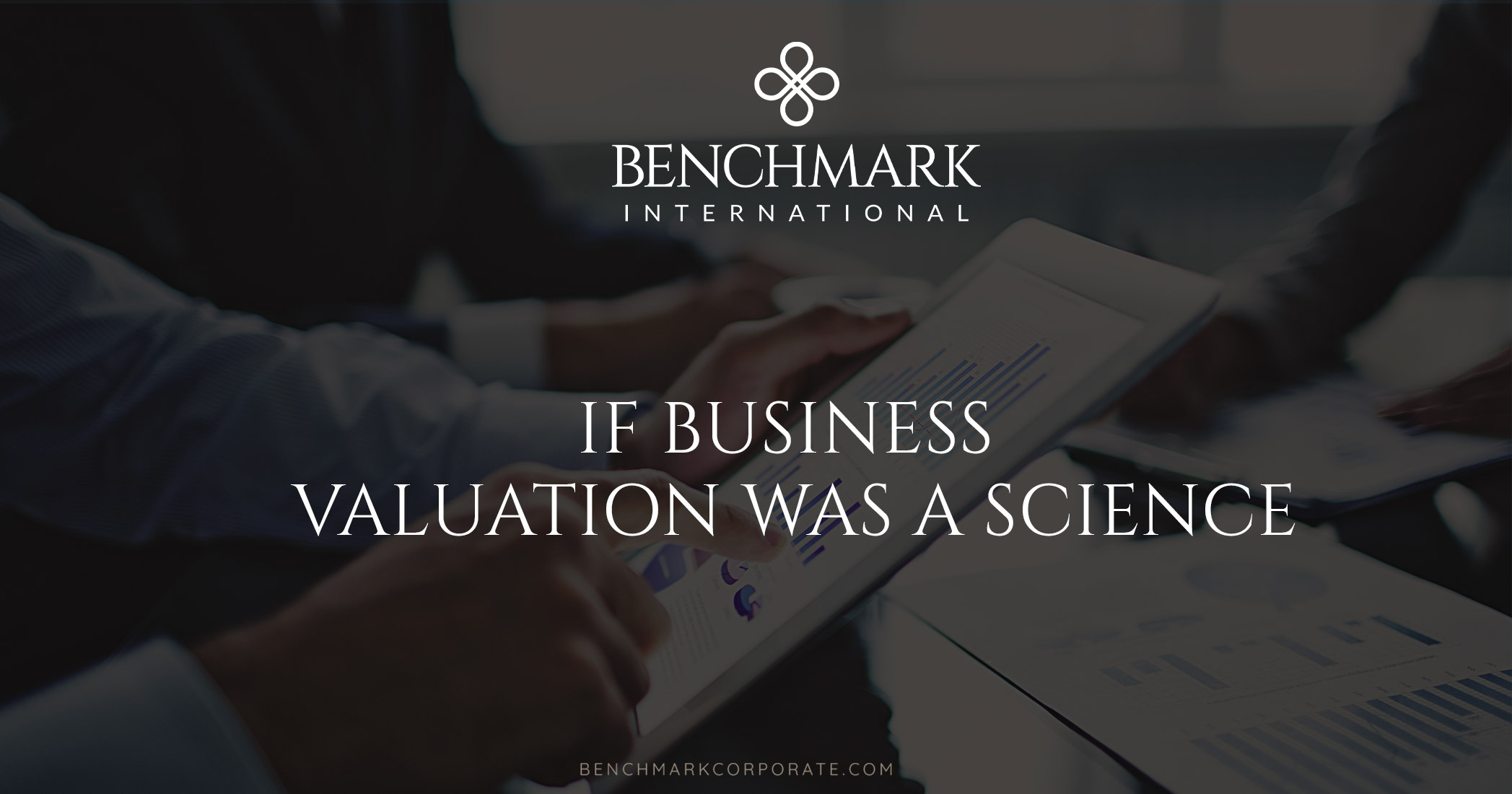Determining the value of your business is not as simple as looking at the numbers, applying tried and tested formulas, and concluding. Were it that straightforward all business valuations would be virtually identical. The fact that they are not is sure proof that valuation is not a science, it can only be an art.
If Mergers and Acquisitions (M&A) was as straightforward as calculating the theoretical value of a business, based on historical performance and using that to determine market value I would need something more constructive to do with my time.
Valuation is not as primitive as we have been led to believe. Whilst transaction values are commonly represented as a multiple of earnings this is merely the accepted vernacular used to report on a concluded transaction and almost never the methodology used to arrive at the value being reported.
The worth of a business is often determined by the category of buyer engaged. Financial buyers can add significant value to a business in the right stage of its life cycle but may not assume complete ownership, thereby delivering value for the seller simultaneously with their own. The right strategic acquirer for any business would be one that can unlock a better future for the business, and is willing to recognize, and compensate, a seller for the true value the entity represents to them.
Comparing the experience of so many clients, over so many years, and avidly following the outcomes of all the transactions published in South Africa there is little dispute that businesses are an asset class, like any other, and that the best value of all asset classes are only ever realized through competitive processes irrespective of whether the acquirer has financial or strategic motives.

1. The itch of business valuation
Simplistically, for the right acquirer - one seeking an outcome that extends past a short-term return on their initial investment - valuation is more a function of the buyer's next best alternative, than it is a businesses’ historic performance.
It would be naïve to think that the myriad of accepted valuation methodologies have no place in the process but identifying, engaging and recognising the benefits of the acquisition for a variety of strategically motivated buyers is essential in determining value in this context.
Considering a variety of appropriate valuation metrics, the parameters applied and then being able to balance these against the alternative investment required to achieve a similar outcome is where the key determinant of value lies. This is a complex process that unlocks the correct value for buyer and seller alike and it is a result that is rarely achieved without engaging with a wide variety of different acquirers and being prepared to "kiss a few frogs"
The most valuable assets on the planet are only ever sold through competitive processes where buyers have the benefit of understanding and determining value in the context of their own motives, having considered their available alternatives. It is for this reason that when marketing a business, it should never be done with a price attached.
2. An aggressive multiple
Whilst conventional wisdom is firm on industry average multiples, case studies abound, and the business community is regularly astounded by stated multiples achieved when companies change hands.
Beneath the glamour, the reality is that multiples are rarely used as a determinant of value, but almost without exclusion applied to understand it. Multiples represent little more than a simplistic metric that reflects an understanding of how many years a business would need to reliably deliver historic earnings in order for the acquirer to recoup their investment.
In the same way as a net asset value (NAV) valuation would unfairly discriminate against service businesses, multiples discriminate against asset rich companies. For strategic acquirers, with motives beyond an internal rate of return - measured against historic earnings - valuation is sophisticated. It relies on an assessment of whether the business represents the correct vehicle to achieve the strategic objectives, modelling the future returns and assessing risk. Valuation in these circumstances will naturally consider it, but places little reliance on the past performance of a business constrained by capital or the conservatism of a private owner to formulate the future value of such investment.
Whilst there are Instances where the product of such an exercise matches commonly accepted multiples, there are equally as many valuations that, on the face of it, represent unfathomable results.
3. A better tomorrow for the buyer
It would be irresponsible to advocate that that return on investment is not a consideration when determining value - corporate companies and private equity firms typically all have investment committees, boards and shareholders that assess the financial impact of any transaction. It is rare that such decisions are ever vested with a single individual, or that the valuation is derived from their personal desire to own a company or brand.
The art of valuation requires a reliable determination of the synergies between buyer and seller and an accurate assessment of the risks and benefits of the investment. Risk and reward are inherently related and skilled negotiation is required to find solutions that mitigate, or de-risk a transaction for buyer and seller alike, in order to underpin the value
of a transaction.
Financial buyers can be very good acquirers, especially in circumstances where they are co-investing alongside existing owners, staff or management to provide growth funding. When seeking a strategic partner for a business the acquirer should always be unable to unlock value beyond the equivalent of a few years of historical earnings. It is for this reason that the disparity between valuations by trade and financial buyers exists, and why determining the appropriate form of acquirer for any business is a function of the objectives of the seller.
4. Passing-on the baton, or living the legacy
The motives for a sale can be varied and extend from retirement to funding and growth, from ill-health to a desire to focus on the technical (as opposed to management and administration) aspects, of the business.
Value for buyers and sellers comes in many different forms. For sellers it is their ultimate objective that determines whether they have achieved value in a transaction. For sellers it may be as simple as the price achieved or it could extend to value beyond the balance sheet as diverse as leveraging the acquirer’s BEE credentials, unconstrained access to growth capital or even to secure a future for loyal staff.
For both local and international buyers alike, the intangibles may be as straightforward as speed to market in a new geography who would otherwise not readily secure vendor numbers with the existing customers of the target business. An acquisition may be motivated by access to complimentary technology, skills or distribution agencies to diversify their own offering. Whatever the motives, an assessment of the future of the staff will always be an important aspect to both parties.
There are few, if any businesses, that are anything without the loyal, skilled and hardworking people that deliver for the clients of a business. The quality of resources, succession and staff retention are all factors that weigh on a decision to transact. Navigating the impact of a transaction on staff is a factor that cannot be ignored and the timing of such announcements can be meaningful.
Author:
Andre Bresler
Managing Director
Benchmark International
T: +44 (0) 1865 410 050
E: Bresler@benchmarkcorporate.com
READ MORE >>
 Benchmark International
Benchmark International  Benchmark International
Benchmark International 




